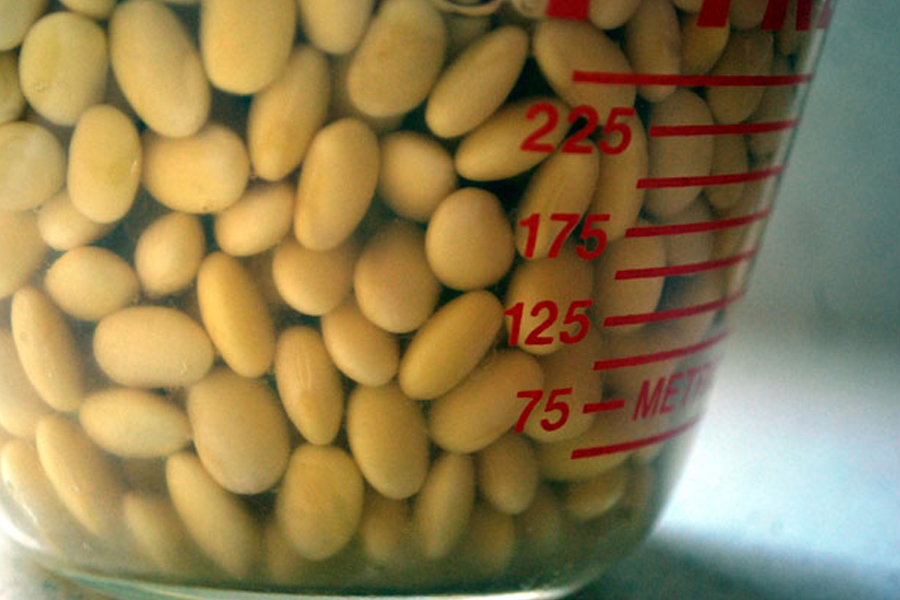GMO and Thai Government
The government of Thailand is in favor of doing open-field trials for using genetically modified organisms (GMO) on four agricultural crops that they are regularly exporting to other countries once the Biosafety Bill passes. These include corn, soy, cotton, and papaya. The reason for this persisting interest despite pressure from local farmers, scientists, and international civic organizations such as Greenpeace to halt GMO experiments is for the most material of them all: money.
Thailand exports make up a major portion of its gross domestic product (GDP). The countries that receive majority of these exports are China, Japan, United States, Indonesia, and Malaysia although these are primarily for rice and rubber as well as manufactured products such as automobiles, textiles and footwear, computers, jewelry, and electrical appliances. However, Thailand is in the midst of a growing economy, so they are naturally eager to expand their trade opportunities by improving yields of these cash crops. While most European Union countries and Japan are banning imports of GM food products and have strict label laws on them, the US and Canada have no such restrictions. As a result, products with GM components from these countries lack labels that should provide information to consumers. This presents a potential health hazard, especially those who are practicing vegetarianism because they heavily consume soy-based “meat” products.
What Are GMOs?
GMO refers to the genetic modification of food products used for human consumption i.e. tomatoes and animal feeds i.e. corn. Genetically engineered (GE) crops are resistant to pests and disease, have longer shelf lives, and produce higher or larger yields. Some crops that have undergone genetic manipulation include GMO rice, GMO corn, and various fruits and vegetables. GE livestock i.e. pigs target gene traits aimed at reducing mortality and increasing the quality of meat and other consumable yields.
Health Risks Associated with GMO Consumption
The biggest fear of anti-GMO activists is that genetic manipulation of food products may have adverse long-term health effects that are yet unknown. There are fears that these manipulated genes may make subtle changes on a cellular level that are not immediately obvious but will be passed down to later generations.
There are no definitive studies proving GE products are dangerous, but the absence of proof is not a guarantee that it is safe. There have been indications that GE foods may transfer allergenic properties to previously non-allergenic foods. For example, people allergic to Brazil nuts had allergic reactions to soybeans inserted with Brazil nut genes. The movement against GE foods is calling primarily for extended studies into the health risks associated with GMOs.
There are some advocates for GM as a way to solve food scarcity and feed the growing human population. They call for less hysteria and more open-mindedness about GM, but they also call for more studies to settle the matter once and for all.
Identifying GMO Products
In countries that do not require nutrition labels to identify GMO components such as the US, consumers have to be vigilant about the food they buy. Here are some ways to tell if a food item is genetically modified (GM) in the US.
- Most corn, soybeans, Hawaiian papaya, canola, and sugar beets (the main source of many popular artificial sweeteners) in the market are GM
- When picking out fresh produce, check the price look up (PLU) code. If it starts with an 8, it is GM
- Certified as organic by the USDA (US Department of Agriculture)
- Most meat, eggs and dairy are GM because animal feeds are GM
Minimizing Exposure to GM Products
- Avoid processed foods and the at-risk foodstuffs mentioned above
- Use artificial sweeteners made from cane sugar or Agave
- Consult with the Center for Food Safety for a list of GM brands
- Download the True Food Network iPhone or Android app that will help identify a product as GM or not while in the supermarket
Vegetarians should know that the following vegan products are probably GM unless labeled as organic:
- Boca burgers
- Garden burgers
- Morningstar Farms, Loma Linda
Food and Your Body
There is a saying that goes, “Health is wealth”. True because if you are healthy, you can do anything you want and you can be a great asset to your society to help others in need but if your health has deteriorated, you are not an asset anymore instead a liability not only to your family but to the society that’s why it is always your duty to keep an eye on your health because nobody is to be blamed if you get sick. The worst is, you will face God’s judgment if you cause any trouble in your body as Apostle Paul writes in 1 Cor. 10:31,
“Whether therefore ye eat, or drink, or whatsoever ye do, do all to the glory of God.”
We are not the owner of our body and if we defile our body whether in eating or drinking, we will face God’s judgment because our body is God’s property and
“If any man defile the temple of God, him shall God destroy; for the temple of God is holy, which temple ye are.” 1 Cor. 3:17.
God gave us the intelligence to properly judge what is good and bad for our body and it is our responsibility to follow what is right for our own benefit.

